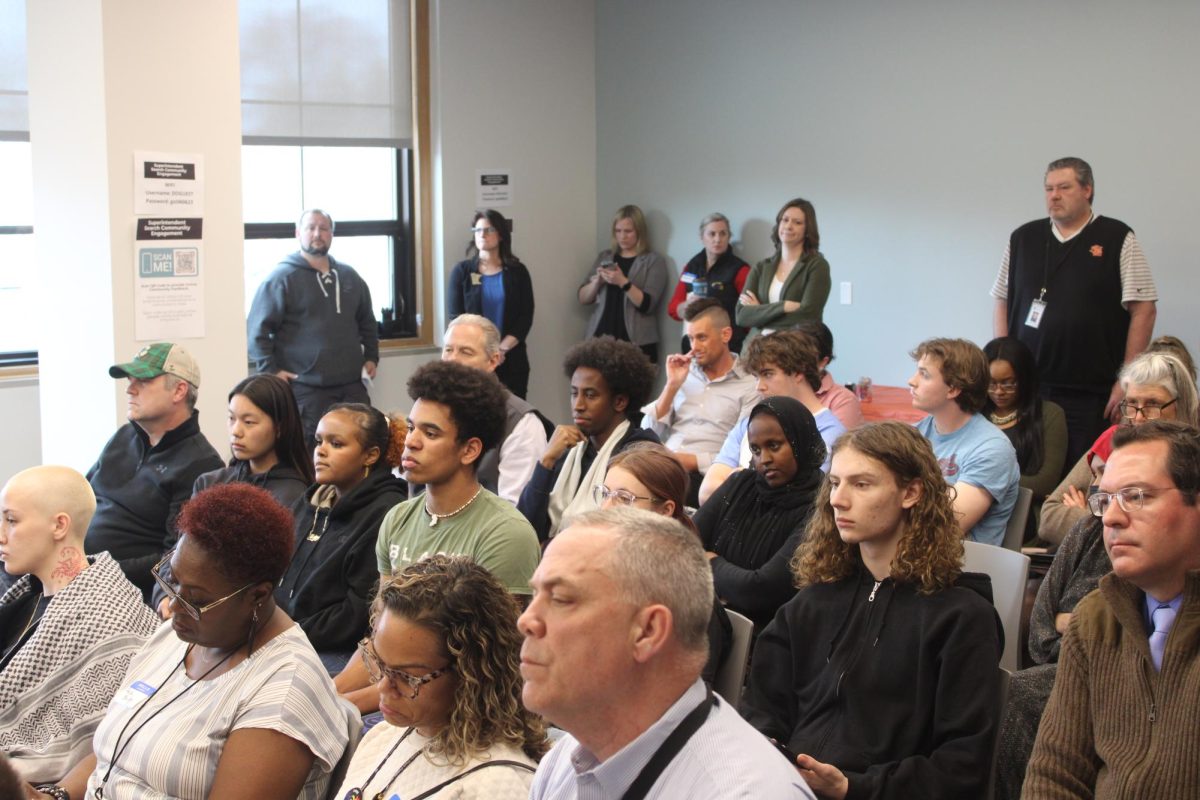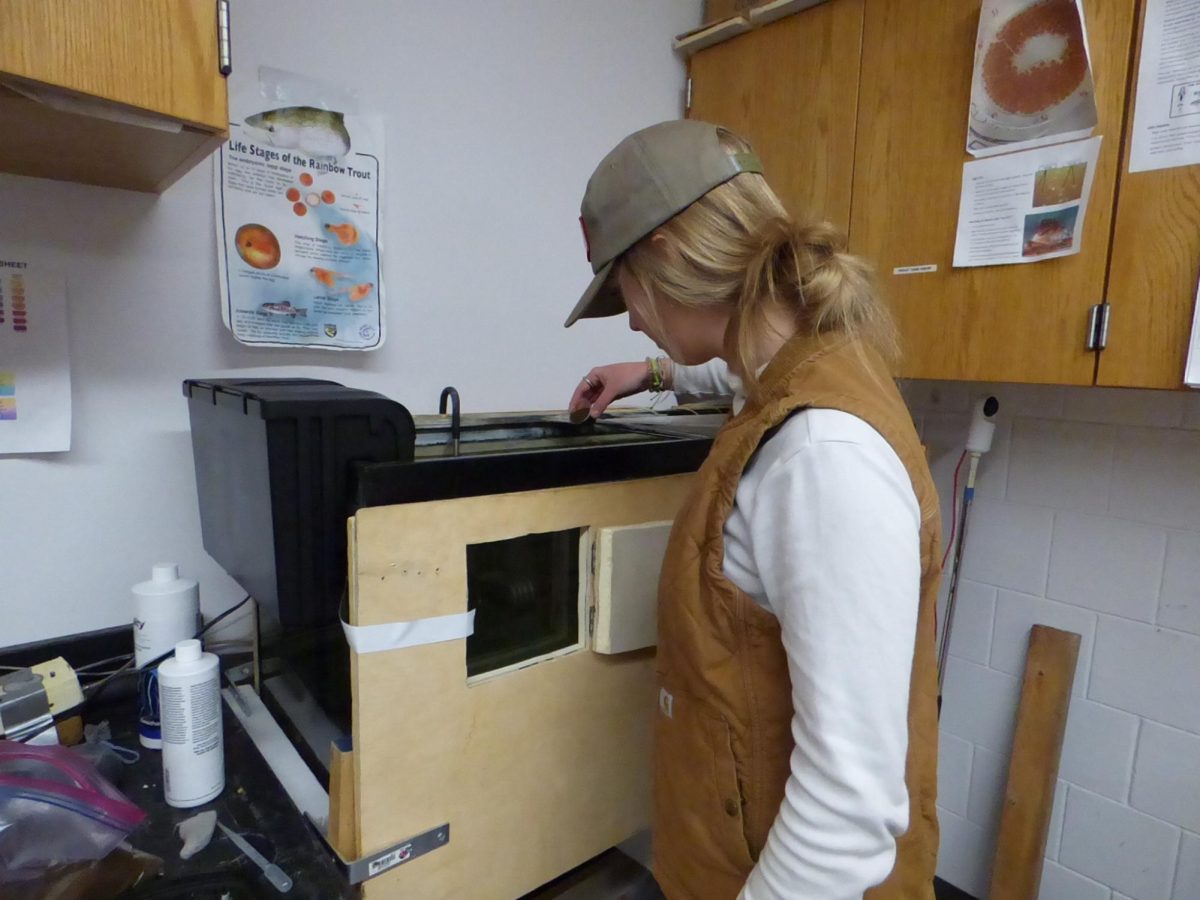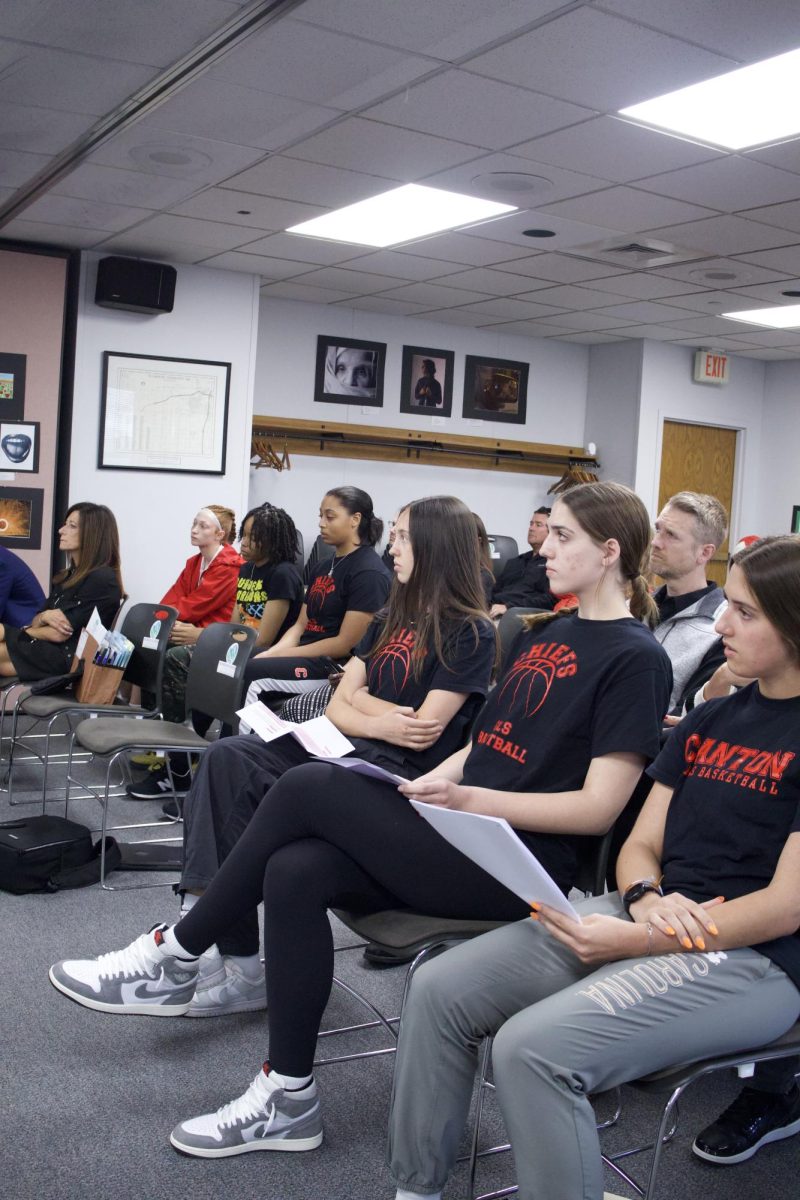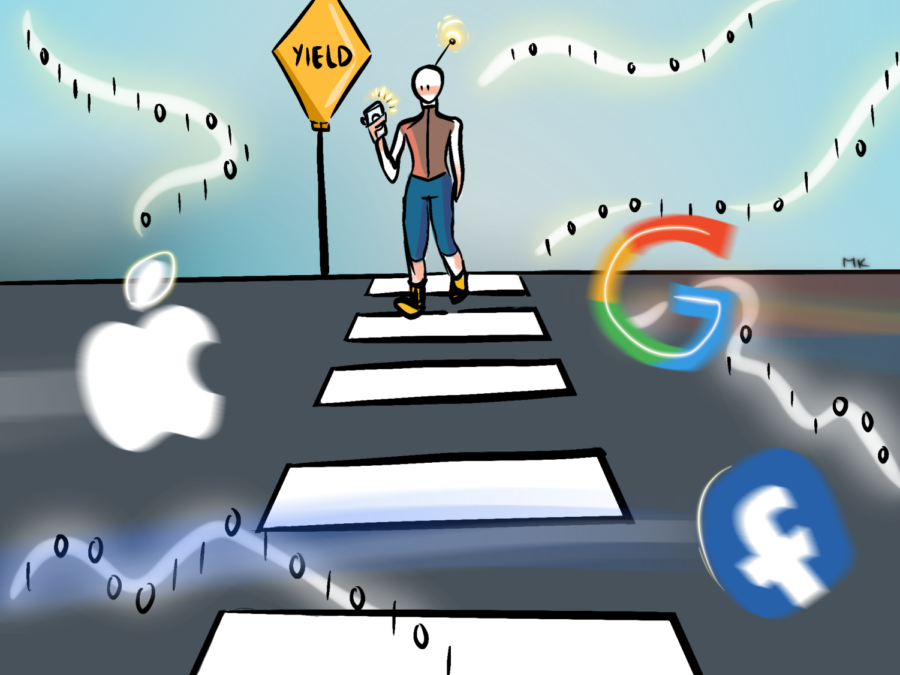Ever since you were little, your parents have likely instructed you to look both ways before crossing the street. At first, you may have been hesitant to heed their instructions, for what could be so dangerous that you had to pause and look for it before moving forwards?
The answer is automobiles. On average, these man-made vehicles weigh 3,500 tons and can drive with speeds over 100 mph. They are fusions of steel, plastic, and glass, designed in a way to protect the driver and take them where they need to go, but not to protect the small child walking across the road.
This isn’t a story about cars: it’s a story about surveillance technology.
Like the presence of automobiles, which became prominent in America during the 1920s, surveillance tech has recently emerged as yet another danger to be constantly aware of. Big tech companies- such as Apple, Facebook, Twitter, Google, and Amazon– while initially viewed as ingenious products of human construction in the late 1900s, are now a point of extreme controversy for the exploitation of their consumers, and the lack of protective policies and regulations.
In fact, Facebook has recently gone under fire for a data breach that exposed the personal information of over 530 million users. Almost simultaneously, Amazon’s Alexa has been sued for listening to household conversations, and Google’s privacy policies have been brought up for questioning multiple times.
Tell me if this sounds familiar. You walk into a room to find your friend, your parent, or a sibling lounging on the couch. You start up a conversation about going to see the new Marvel movie and bam, the next day, all you see on your TV, computer, or phone are advertisements for exactly the movie you were talking about the day before.
You would probably think that was a little creepy, but soon forget about the incident and move on with the day, convinced that it was just a coincidence, because you never gave anyone permission to listen to you through your device. But, there’s a really good chance you could have.
One way tech companies manipulate the user is through their lengthy user agreements, which amount to dozens of pages of tiny, fine print font. Naturally, no one actually reads the entire thing close enough to understand what it means, and just click through to the end to accept the terms with their electronic signature. So perhaps, on page 21 of section 3A in the 6th paragraph, there is a sentence about allowing the organization to essentially act as an extendible ear in your home.
Another way surveillance tech is harming consumers is their utilization of surplus behavioral data, which they use to create astronomical market capital.
We, as consumers but also by extension as employees of big tech companies, contribute by giving them data each time we use their products. For instance, when we log into Google Maps to find directions to a new restaurant, we are sharing precise information about our preferences, not least of which being what type of food we like, where we live, and what time of day we are driving to the restaurant.
All of these bits of data are then broken down and dispersed, and Google is free to use our ‘statistics’ and store them for future reference.
In other words, we are completely surrounded by information-gathering devices that manipulate our behavioral data for the sole motive of profit. We need regulations and transparency to make sure that users’ behavioral data isn’t used against them or at their expense.
Consumers must be protected from the ever-growing presence of surveillance technology, and most importantly from those individuals who utilize the technology with the objective of reselling user information to third parties and violating their privacy.
You may shake your head in defeat, picturing the global reach of companies like Apple or Amazon and woefully admitting that, as an individual, it would be nearly impossible to initiate a change in their privacy policies. And you are right.
However, knowledge itself is a valuable tool online users can employ to keep their data more protected. Once aware of some of the scope of the data made available to these companies, active steps can be taken to keep some information hidden.
To help keep our information safe, we must learn to be constantly vigilant when in the presence of surveillance tech, and develop daily habits that can protect us from the speeding, dangerous, and volatile industry that big tech companies are creating. Browsing incognito or using secure browsers like DuckDuckGo, limiting personal information shared online, reading privacy policies, and using quality antivirus software are simple ways to do so. Like looking both ways before crossing the street, these measures can help us stay on the lookout for data abusers.
Technology in itself is not evil: the way that companies and individuals monetize it is.
Maya Kornyeyeva.
This story was originally published on Scot Scoop News on January 28, 2022.






























![IN THE SPOTLIGHT: Junior Zalie Mann performs “I Love to Cry at Weddings,” an ensemble piece from the fall musical Sweet Charity, to prospective students during the Fine Arts Showcase on Wednesday, Nov. 8. The showcase is a compilation of performances and demonstrations from each fine arts strand offered at McCallum. This show is put on so that prospective students can see if they are interested in joining an academy or major.
Sweet Charity originally ran the weekends of Sept. 28 and Oct. 8, but made a comeback for the Fine Arts Showcase.
“[Being at the front in the spotlight] is my favorite part of the whole dance, so I was super happy to be on stage performing and smiling at the audience,” Mann said.
Mann performed in both the musical theatre performance and dance excerpt “Ethereal,” a contemporary piece choreographed by the new dance director Terrance Carson, in the showcase. With also being a dance ambassador, Mann got to talk about what MAC dance is, her experience and answer any questions the aspiring arts majors and their parents may have.
Caption by Maya Tackett.](https://bestofsno.com/wp-content/uploads/2024/02/53321803427_47cd17fe70_o-1-1200x800.jpg)
![SPREADING THE JOY: Sophomore Chim Becker poses with sophomores Cozbi Sims and Lou Davidson while manning a table at the Hispanic Heritage treat day during lunch of Sept 28. Becker is a part of the students of color alliance, who put together the activity to raise money for their club.
“It [the stand] was really fun because McCallum has a lot of latino kids,” Becker said. “And I think it was nice that I could share the stuff that I usually just have at home with people who have never tried it before.”
Becker recognizes the importance of celebrating Hispanic heritage at Mac.
“I think its important to celebrate,” Becker said. “Because our culture is awesome and super cool, and everybody should be able to learn about other cultures of the world.”
Caption by JoJo Barnard.](https://bestofsno.com/wp-content/uploads/2024/01/53221601352_4127a81c41_o-1200x675.jpg)






